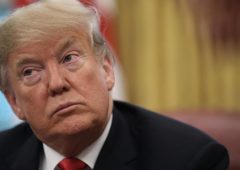SEC’s Crypto Task Force to Host Four Key Roundtables
27.03.2025 11:28 1 min. read Alexander Stefanov
The SEC's Crypto Task Force is ramping up its efforts to tackle digital asset regulation, announcing a series of four upcoming roundtable discussions.
These sessions, starting in April, aim to address key issues in the crypto industry, with the first roundtable focused on regulating crypto trading platforms on April 11.
Subsequent discussions will explore topics such as cryptocurrency custody on April 25, tokenization of assets on May 12, and the intersection of decentralized finance (DeFi) with American values on June 6. All events will be open to the public and streamed online, allowing broader participation.
This initiative builds on the SEC’s ongoing efforts to clarify crypto regulations, following their first roundtable which discussed the challenges of classifying digital assets.
Mark Uyeda, the SEC’s Acting Chair, highlighted the complexities in determining how crypto assets fit within current federal laws. He suggested that a formal regulatory approach, such as rulemaking, could help resolve these uncertainties, marking a shift toward more structured regulation.
The task force is also inviting stakeholders to apply as panelists, a move designed to increase public input into the regulatory process. This step signifies a more inclusive approach, allowing diverse voices to participate in shaping the future of digital asset rules. By fostering open dialogue, the SEC aims to create a regulatory environment that is both effective and adaptable to the rapidly evolving crypto landscape.
-
1
FTX Pushes to Dismiss Billion-Dollar Claim from 3AC
23.06.2025 15:00 1 min. read -
2
BIS Slams Stablecoins, Calls Them Ill-Suited for Modern Monetary Systems
26.06.2025 9:00 1 min. read -
3
ARK Invest Cashes In on Circle Rally as Stock Soars Past $60B Valuation
24.06.2025 19:00 1 min. read -
4
Trump’s ‘Big, Beautiful Bill’ Approved: What It Means for Crypto Markets
04.07.2025 7:00 3 min. read -
5
FTX Pushes Back Against $1.5B Claim From Defunct Hedge Fund 3AC
23.06.2025 11:00 1 min. read
Coinbase Strengthens DeFi Push With Opyn Leadership Acquisition
Coinbase has taken a major step toward expanding its decentralized finance (DeFi) presence by bringing onboard the leadership team behind Opyn Markets, a prominent name in the DeFi derivatives space.
Grayscale Urges SEC to Allow Multi-Crypto ETF to Proceed
Grayscale Investments has called on the U.S. Securities and Exchange Commission (SEC) to allow the launch of its multi-crypto ETF—the Grayscale Digital Large Cap Fund—arguing that further delays violate statutory deadlines and harm investors.
Robinhood Launches Ethereum and Solana Staking for U.S. Users
Robinhood has officially introduced Ethereum (ETH) and Solana (SOL) staking services for its U.S. customers, offering a new way for users to earn rewards on their crypto holdings.
Senate Confirms Crypto-Linked Nominee Jonathan Gould to Head OCC
The U.S. Senate has confirmed Jonathan Gould as the next head of the Office of the Comptroller of the Currency (OCC), moving his nomination to President Donald Trump for final approval.
-
1
FTX Pushes to Dismiss Billion-Dollar Claim from 3AC
23.06.2025 15:00 1 min. read -
2
BIS Slams Stablecoins, Calls Them Ill-Suited for Modern Monetary Systems
26.06.2025 9:00 1 min. read -
3
ARK Invest Cashes In on Circle Rally as Stock Soars Past $60B Valuation
24.06.2025 19:00 1 min. read -
4
Trump’s ‘Big, Beautiful Bill’ Approved: What It Means for Crypto Markets
04.07.2025 7:00 3 min. read -
5
FTX Pushes Back Against $1.5B Claim From Defunct Hedge Fund 3AC
23.06.2025 11:00 1 min. read


